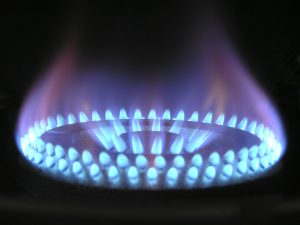Energy bills are one of those bills we dislike receiving in the post. We worry about how our living might affect the cost of the bills, especially when they arrive in the winter. After all, during those cold months, we have the heating systems on during the day and night. We also use the lights more often due to the darker nights and find ourselves spending a lot more time indoors.
In fact, before the arrival of the new bill, a lot of families try to find ways to cut costs. They avoid putting the heating on and they stop the kids from using their devices as often.
But while you can find ways to cut down the amount, the best thing you should do is find out if you are spending the right amount. After all, it’s important to know how much your bills should cost so that you know whether you need to make a change or if the amount is correct.

How much are households spending on bills
First things first, you need to know that the average household in the UK is spending £1,264 a year on their bills; they are paying out nearly £105.33 a month. Of course, some people are paying this out on electricity while others are on gas. And if you are wondering what tends to cost more per year, it tends to be electric.
What’s impacted the rising costs of energy?
Gas boilers in new builds are going to be a thing of the past with the government banning them from 2025, so more electricity bills will creep up with households turning off gas and switching to other more eco-friendly measures instead.
Also, you might not realise but the cap also rose on energy bills back at the start of the tax year so this year households will pay out nearly £100 more than they did last year. If you look back on the last decade or two, gas has seen an increase of 221% and electric has risen by 193%.
Who is paying the most in the country?
The region you are in also has an impact on how much you are paying for energy bills. The highest bills come from Merseyside & North Wales who spend an average of £1,310.56 on their energy bills. In second place is the South West, third is North Scotland, fourth is the South East, and London rounds off the top five with an average of £1,293.67 a year on their gas and electricity.
If you are looking for the cheapest energy bills, you need to head to the East Midlands who are at the bottom of the pile when it comes out to gas and electricity. It does change slightly when it comes to the actual fuel with London spending the most on gas with an average of £582.22 while Merseyside & North Side seem to favour electricity.
How are they paying their bills?
People in the UK are also changing the way they spend their bills with now people switching from old measures such as pre-payment and credit to the easier option of direct debit. Both gas and electric users are now mostly using this form of payment method instead of opting for credit or prepayment.

How has COVID affected energy bills?
The impact of COVID has also affected people’s energy bills with a lot of people struggling to pay out for this due to job losses and poor health. With a high amount of people now unemployed, they can’t afford their bills. In fact, during the second half of 2020, the number of people in arrears increased substantially. This was also the same when it came to unemployed levels providing the two were linked together. Thankfully, with things returning to normal, it seems that people are being able to pay off their bills. While COVID impacted people paying their bills, the amount stayed the same due to a price cap which enabled people to move around as necessary.
How to cut the cost of bills
So, taking this all into account, how are you meant to cut down the cost of your energy bills?
- Look at investing in some form of heating control – use this system to control the energy in your home so you aren’t using it unnecessarily.
- Change suppliers – shop around and get the best deal for your household
- Make sure the heating is running efficiently – make sure you aren’t losing heat from your house- keep double glazing and insulation updated
- Go for more modern appliances – energy efficiency is the way forward to cut costs.








